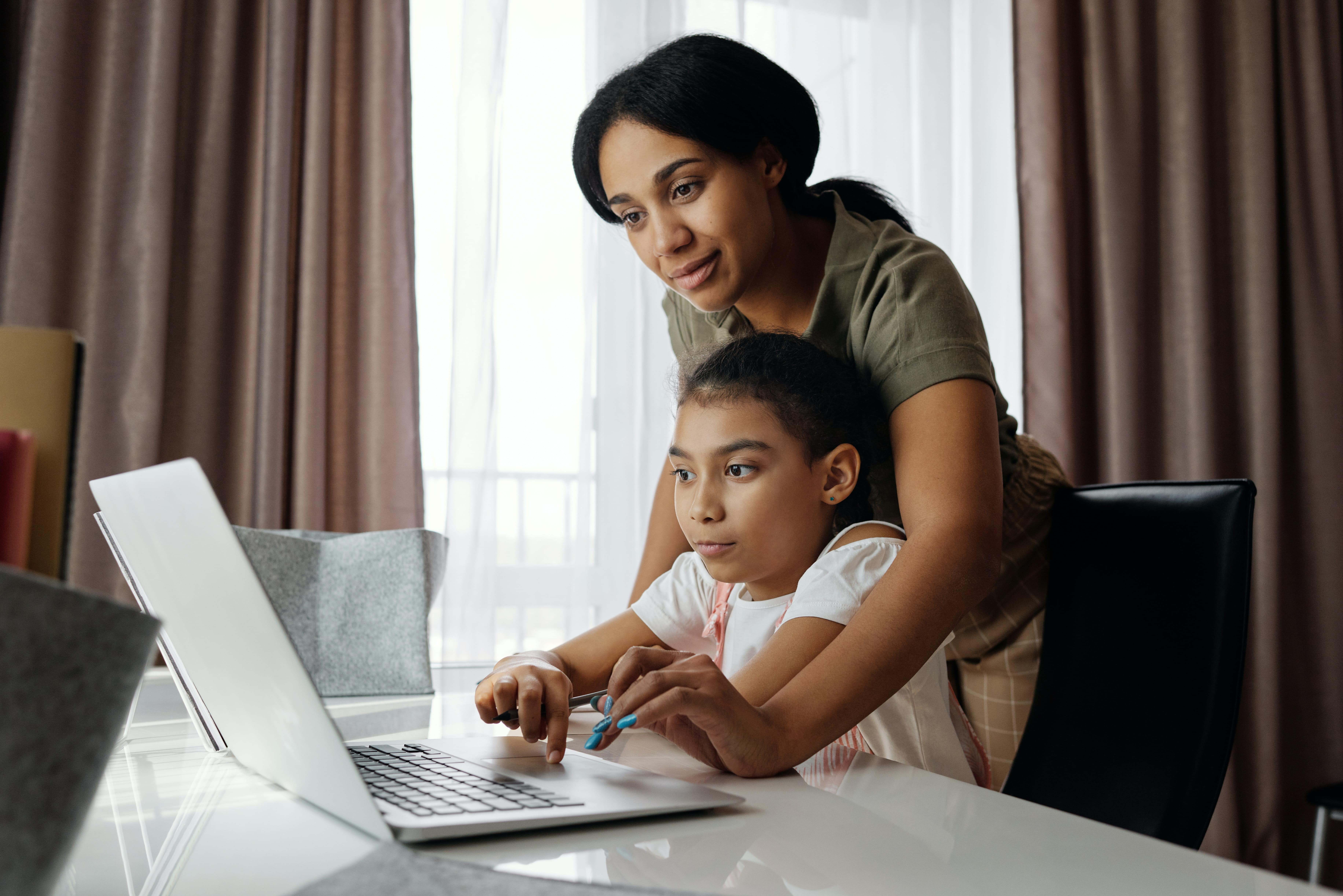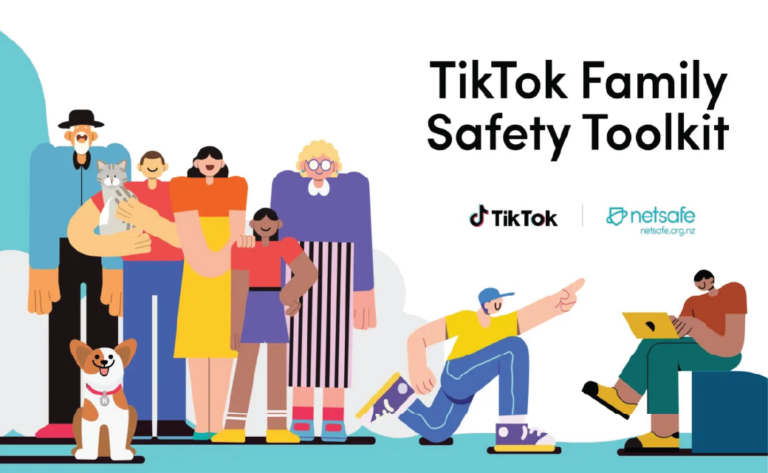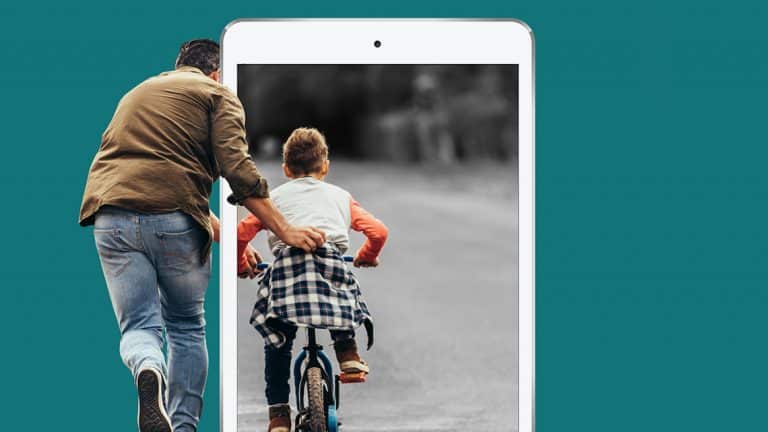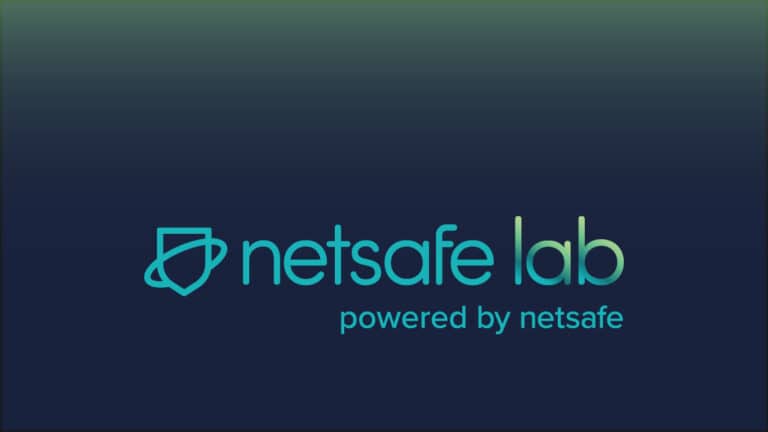Parent awareness of children’s online lives
Netsafe’s latest research, Parental awareness of children’s experiences of online risks and harm, is now available. The report from our Global Kids Online study shares insights into New Zealand parents’, caregivers’ and whānau perceptions of children’s experiences of online risk and harm. The research reveals a mismatch between parents’ awareness and their children’s experiences of upsetting online…

Netsafe’s latest research, Parental awareness of children’s experiences of online risks and harm, is now available. The report from our Global Kids Online study shares insights into New Zealand parents’, caregivers’ and whānau perceptions of children’s experiences of online risk and harm.
The research reveals a mismatch between parents’ awareness and their children’s experiences of upsetting online content. This report comes off the back of previous Netsafe research looking at the activities children in Aotearoa have online and their experiences of online risks and their perceptions of harm. It is the first report of its kind focused on children and their parents in Aotearoa, and joins an international body of work.
Research summary
A total of 2,061 New Zealand children aged 9 to 17 years of age and 2,061 parents participated in this research. The research sample of parents and children is broadly representative by age, gender, and ethnicity of the population of New Zealand.
Key findings
The research identified:
- Nineteen percent of parents were aware their child had been bothered or upset by something online in the last 12 months whereas 25 percent of children aged between 9 and 17 years said that this happened to them.
- Only a quarter of parents thought their child could cope with upsetting internet experiences, although the findings reveal parental awareness about the emotional impact their child has is consistent with their child’s experiences.
- There is not a significant difference between parents’ knowledge of their children being treated in a nasty way online and their child treating someone else in a hurtful way. Parents of girls (19 percent) were more likely to report their child was treated in a harmful way online compared to parents of boys (15 percent), and Māori parents also reported a higher rate (22 percent).
- Parents were unaware about their children meeting a person face-to-face that they first knew online (26 percent of parents versus 38 percent of children). Parents of boys (29 percent) reported a higher occurrence of their child interacting online with people they don’t know.
- It is more common for parents of boys (23 percent) and Pacific parents (33 percent) to report that their child had been exposed to gory or violent images. Parents of girls (16 percent) and children under 15 (18 percent) reported higher rates of exposure to hateful content online. Awareness of exposure to drug taking was higher among parents of girls (13 percent), children aged 15-17 (15 percent) and Māori and Pacific parents (both 15 percent).
- Parents of adolescents aged 13-17 seem to underestimate their children’s exposure to potentially harmful online content to things such as violent images, hate speech, self-harm, drug taking.
- Nearly half of the parents surveyed believe they have the skills to help their child deal with risks and harm online. Parents of girls and children under 13 were more likely to feel confident, whereas Asian parents felt less confident in their abilities to support their child.
Netsafe insights
- Many parents did not grow up with the internet so it can be hard to imagine how their children may use it. These findings suggest parents are in tune with their children’s online lives despite barriers such as different technological knowledges.
- Kids in New Zealand are largely following the trends we see overseas in terms of their confidence in digital skills and preferred online activities.
- The results reinforce that parents are trusted sources of support and that the pre-teen age bracket is an important intervention period to teach children online safety skills.
- Netsafe has assembled in one easy to use Online Safety Parent Toolkit all the things parents consistently say they want to know about. From online bullying to grooming to social media to sexting and screen time, Netsafe’s Toolkit is the guide everyone needs to look at to help keep tamariki safe online.
For parents, whānau and caregivers needing extra support there is advice to help you tackle some of the challenges and opportunities that exist online in the parent section of our website.
About the report
This report is Netsafe’s third publication as a member of the Global Kids Online network. Netsafe joined the international network dedicated to the study of children’s rights, risks and opportunities with the support of UNICEF NZ in September 2018.
Netsafe’s work as a member of the network reflects a commitment to helping New Zealand kids maximise digital opportunities and prevent the impact of online harm. Our dedicated research team are available to exchange expertise and knowledge. You can contact them at [email protected].





